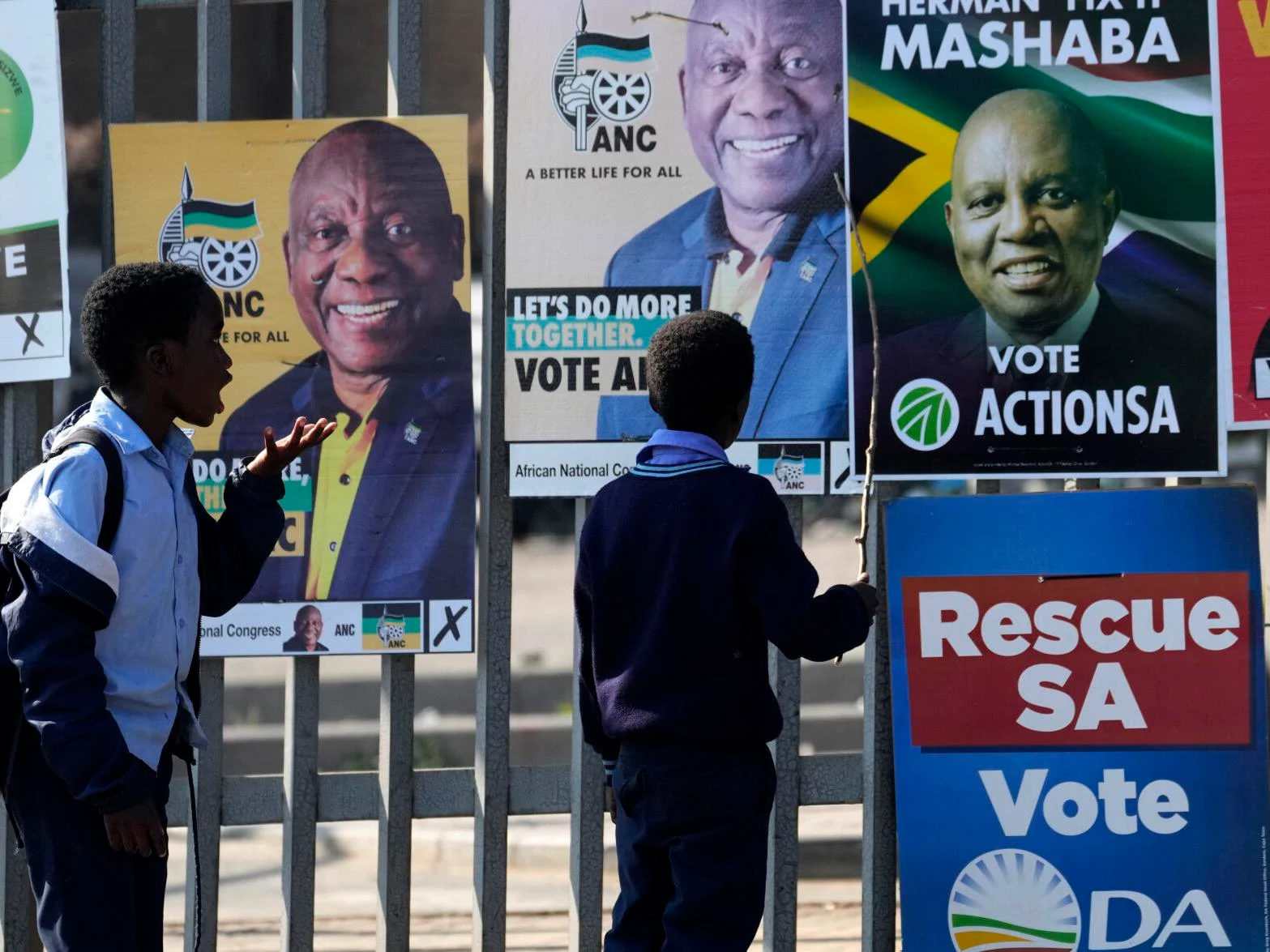
Election results in South Africa show that the DA, Zuma’s party, and the ANC are performing well
Partial results from South Africa’s general election indicated that the African general Congress seemed set to lose the legislative majority it has had for thirty years, marking the most significant political change since the end of apartheid.
The African National Congress (ANC) may have to strike a compromise with one or more other parties to form government if the final results verify that it has lost its majority. This might result in extraordinary political instability in the upcoming weeks or months.
According to Simon Harvey, head of foreign exchange analysis at Monex Europe, “there will be checks and balances on the ANC power, but the ultimate risk is that the infighting could make governance ineffective.”
According to figures released by the electoral commission on Thursday, the African National Congress (ANC) had 42.5% of the vote after results from 16.7% of voting places, while the Democratic Alliance (DA), which supports business, received 25.8% of the vote.
With 8% of the vote, the Marxist Economic Freedom Fighters (EFF) party was leading the newly formed uMkhonto we Sizwe (MK) party, which was led by former president Jacob Zuma.
Surveyor Reza Omar of Citizen Surveys stated, “I don’t think it’s likely for the ANC to reach a majority,” adding that although things might change, they were not expected to do so significantly.
According to projections made by South African network eNCA, the ANC would receive a final score of 45%, while the DA would maintain its position as the major opposition party with 21%.
“The ANC looks forward to a clear mandate from voters to continue the work of transforming South Africa and building a better life for all,” the party stated in a statement.
The early findings, according to Tessa Dooms, director of the Johannesburg think tank Rivonia Circle, were biased toward rural areas, where she expected the ANC to be doing better than it did.
“The rural vote is consistently substantially smaller and is cast early. The urban vote is cast very late. At the results center in Midrand, north of Johannesburg, she told Reuters, “I think this election will be a lot more contested in the urban areas.”
As per the country’s constitution, the future president will be chosen by the recently elected National Assembly. That is probably the ANC’s leader, incumbent Cyril Ramaphosa, since the party is still expected to be the biggest.
But, a dismal performance might leave him open to a challenge to the party leadership at some point during his term, or perhaps even sooner.
Harvey added that the rapidity at which a coalition might be put together would be a sign of things to come, given that South Africa was venturing into unknown political ground.
“If it is protracted, you may start to worry about a political gridlock going forward,” he stated.
The markets in South Africa were burdened by uncertainty.
The wider equities index (.JTOPI), opens new tab fell more than 2% on its worst day in six weeks, while the rand fell more than 1% versus the US dollar to reach its lowest point in four weeks. The nation’s foreign bonds saw a dollar loss of up to one cent.
ZERO FACTOR
Since the historic 1994 election, which signaled the end of apartheid and Nelson Mandela’s elevation to the presidency, the ANC has prevailed in national elections, which are held every five years.
However, since those exuberant times, the ANC’s popularity has waned as a result of frustration with problems including high rates of crime and unemployment, frequent outages of electricity, and corruption.
With 66% of registered voters casting ballots in the previous election in 2019, the ANC received 57.5% of the total vote, followed by the DA (20.8%) and the EFF (10.8%). The commission has already stated that this time around, voter turnout is expected to be higher.
At the provincial level, the important province of Gauteng—which encompasses the nation’s business hub, Johannesburg, as well as the expansive townships of Soweto and Alexandra—showed the ANC at 35.7%, the DA at 29.6%, and the EFF at 10.8%.
With 43.2% of the vote to the ANC’s 21.7% in KwaZulu-Natal, a populous eastern province home to the important metropolis of Durban, Zuma’s MK was leading the race. He is well-liked in his home province of KwaZulu-Natal.
After a series of scandals forced Zuma to resign as president in 2018, he fell out with the ANC leadership and decided to support MK. The party seemed to be losing the ANC and the EFF voters; it was called after the ANC’s military branch from the apartheid era.
“MK is going to have a significant role. Given that they are vying for the same voters, it is noteworthy that it closely aligns with the EFF “Dooms stated.
Although the electoral commission has seven days by law to announce the complete results, in reality, they typically do so far sooner. Voting took conducted on a Wednesday, just like it is this year, and the results were announced on a Saturday in the previous election in 2019.
Following the announcement of the final results, the new parliament must meet within 14 days and elect the country’s president as its first act.
This implies that two weeks of rigorous and intricate negotiations may be necessary to decide how to form a new government if it is proven that the ANC has lost its majority.
All Categories
Recent Posts
Tags
+13162306000
zoneyetu@yahoo.com



